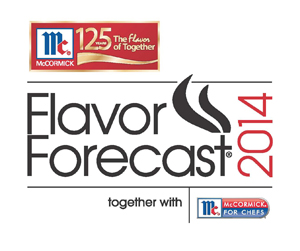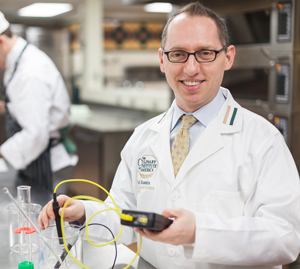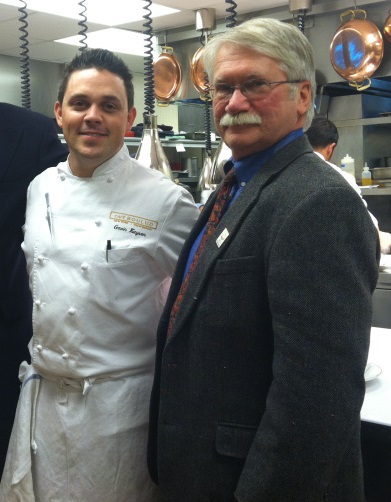Guest Speaker: Lessons Learned in 2013
Friday, 10 January 2014 18:01
 Among many professional-development events held last year, the sum of different voices, perspectives and expertise areas was the most valuable take-away.
Among many professional-development events held last year, the sum of different voices, perspectives and expertise areas was the most valuable take-away.
By Mary Petersen
I was privileged to attend several professional events in 2013 including annual conferences for the American Culinary Federation, the Research Chefs Association, Chefs Collaborative, the American Council for Technical Education the International Foodservice Editorial Council; and the National Restaurant Association, in addition to three CAFÉ events: the first postsecondary Deans and Directors Retreat, the 9th-annual CAFÉ Leadership Conference and The Science of Baking Workshop.
These events focused on present challenges and offered numerous ideas for coping with the future. I thought I would share (in no particular order) some relevant (to me and perhaps to you) highlights:

 A roundup of predictions for this year from the most respected sources.
A roundup of predictions for this year from the most respected sources. This special-edition flavor forecast commemorates McCormick’s 125th anniversary with predictions for such trending flavors as chamoy sauce, cassava flour and tea.
This special-edition flavor forecast commemorates McCormick’s 125th anniversary with predictions for such trending flavors as chamoy sauce, cassava flour and tea. Most every restaurant will offer soup, but not every “restoring shop” will have a uniquely delicious apple soup. Says this expert, they should.
Most every restaurant will offer soup, but not every “restoring shop” will have a uniquely delicious apple soup. Says this expert, they should. Videos by Ted Russin are included in a free course with 80,000 students worldwide.
Videos by Ted Russin are included in a free course with 80,000 students worldwide. A Q&A with Gavin Kaysen, who while young represented the United States in the Bocuse d’Or and today heads the kitchen of Café Boulud in New York City.
A Q&A with Gavin Kaysen, who while young represented the United States in the Bocuse d’Or and today heads the kitchen of Café Boulud in New York City. One of the most powerful techniques to help students remember what they have learned and apply it to a range of situations is the assignment to write letters to themselves.
One of the most powerful techniques to help students remember what they have learned and apply it to a range of situations is the assignment to write letters to themselves. Delivering cooking demonstrations to the public and select groups not only benefits others by sharing your and your students’ expertise and talent. More importantly, it also builds and promotes your program’s unique brand. And the strongest advice from Chef Weiner? Keep it simple.
Delivering cooking demonstrations to the public and select groups not only benefits others by sharing your and your students’ expertise and talent. More importantly, it also builds and promotes your program’s unique brand. And the strongest advice from Chef Weiner? Keep it simple. Does your program meet the needs of the industry it serves and adequately prepare your students to shine?
Does your program meet the needs of the industry it serves and adequately prepare your students to shine? As U.S. fisheries rebound under strict federal management, more species earn Seafood Watch “green” and “yellow” rankings. Meanwhile, shrimp caught in Louisiana waters remains on the “Avoid” list.
As U.S. fisheries rebound under strict federal management, more species earn Seafood Watch “green” and “yellow” rankings. Meanwhile, shrimp caught in Louisiana waters remains on the “Avoid” list.